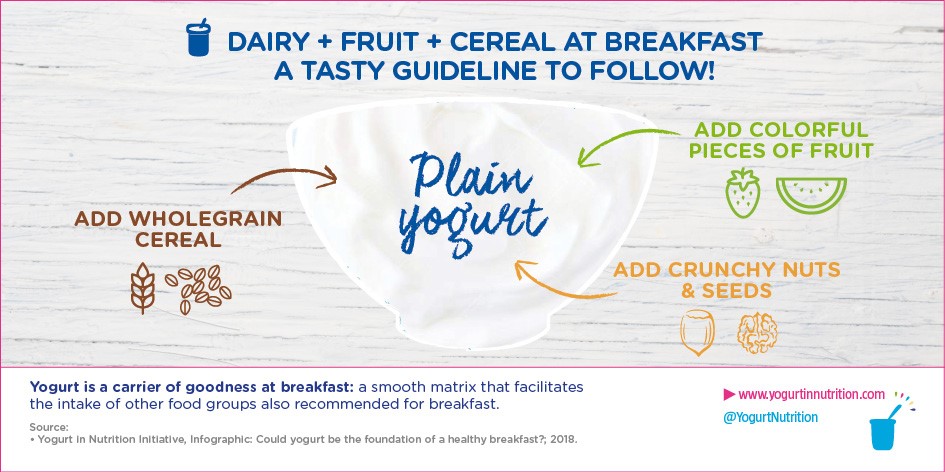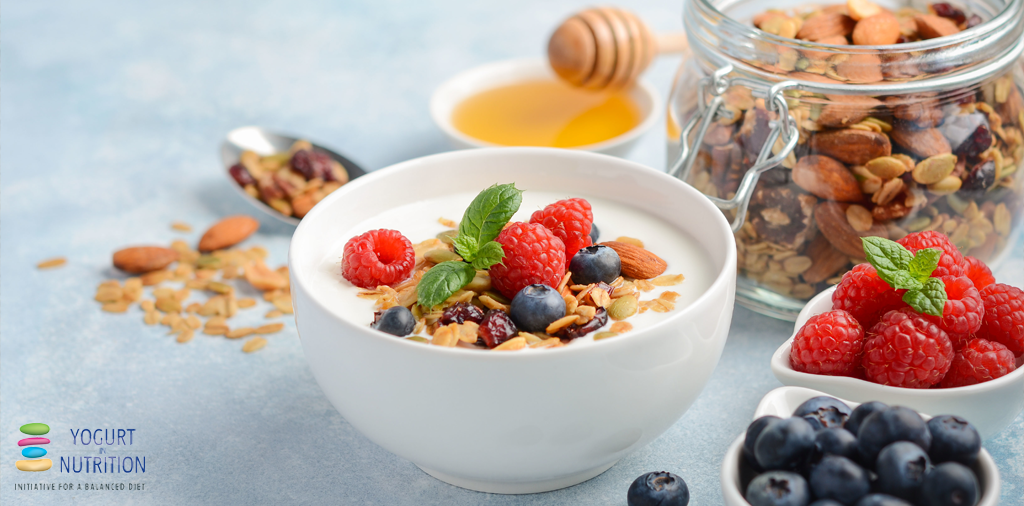Worried about your waistline? Eating a “healthy breakfast” every day, may help you keep a healthy weight, this study suggests.
The importance of breakfast is often overlooked, and it’s easy to fall into the trap of thinking that skipping breakfast can help you shed a few pounds.
In fact, several studies have shown that people who skip breakfast are more likely to be overweight than regular breakfast-eaters. And now this Swiss study reveals that your choice of foods in the morning is associated with your ability to keep an healthy weight.
In particular, breakfasting on yogurt, fruit, nuts/seeds, and wholegrain cereal is a great way nutritionally to kick-start your day and if you regularly eat this kind of breakfast, you’re more likely to avoid piling on the pounds than if you choose other breakfast foods.

Identifying breakfast foods associated with weight control
Most studies that have looked at the health benefits of eating breakfast have compared breakfast-eaters with breakfast-skippers. This study of breakfast habits in Swiss adults is different. It focused on regular breakfast-eaters and aimed to discover which breakfast foods are most associated with keeping a healthy weight.
The researchers used data collected as part of a national nutrition survey (menuCH) in Switzerland. Participants were asked about what they’d eaten and drunk during two non-consecutive days. People eating breakfast during both 24-hour periods and reporting eating breakfast on at least 5 days a week were considered to be regular breakfast-eaters.
From this group of 1,351 people who regularly ate breakfast, dieticians identified 22 breakfast-specific food groups, and three breakfast types:
- “Traditional breakfast”: white bread, butter, sweet spread (e.g. jam, honey)
- “Prudent breakfast” – fruit, unprocessed and unsweetened cereal flakes, nuts/seeds, yogurt (typical ingredients of the Swiss recipe of ‘Birchermuesli’)
- Western-type breakfast”– processed and pre-sweetened breakfast cereals, milk, sugar confectionery, sugary soft drinks
The authors then looked at how the type of breakfast eaten by the participants related to the quality of their diets for the rest of the day, based on their intakes of fibre, vegetables, sugar-sweetened drinks, processed meat, and other dietary components.
Eating breakfast regularly is associated with staying slim
They also measured each participant’s waist-to-hip ratio (WHR), a standard measure of obesity. After taking into account a number of factors, such as sex, age, physical activity and education, the odds of having an increased WHR were 1.6 times greater for participants who ate breakfast occasionally than for regular breakfast-eaters.
Yogurt as part of a healthy breakfast
“Regular breakfast consumers had less abdominal obesity if their breakfast was composed of fruit, natural cereal flakes, nuts/seeds and yogurt.” – Chatelan et al, 2018.
Among the regular breakfast-eaters, those adhering most closely to the “prudent” breakfast (fruit, natural cereal flakes, nuts/seeds, yogurt) were less likely to be obese than those adhering least closely to this breakfast type. People adhering most closely had a 1.2% lower WHR than people adhering least closely.
This association was partly explained by “prudent” breakfast-eaters having a healthier diet during the rest of the day, the authors found.
“…people adhering the most to the “traditional” breakfast were rather older men with increased abdominal fat. Older and more educated people preferred the “prudent” breakfast while younger men favored the “western” breakfast.” – Chatelan et al, 2018.
A healthy breakfast is high in fibre
Compared with other breakfast types, the “prudent” breakfast was rich in fibre from whole-grain cereals, fruit and nuts/seeds. Evidence suggests that eating a high-fibre breakfast may protect against heart disease and weight gain. Fibre may produce these health benefits by having positive effects on the gut microbiota, insulin and blood glucose control, and inflammation, say the authors.
Although breakfast accounts for less than a fifth of the total daily energy intake, the results of this study show that what we eat for breakfast could have a significant impact on our health. More studies in other settings are needed to confirm these findings, say the authors.
Find out more: read the original article.
Source: Chatelan A, Castetbon K, Pasquier J et al. Association between breakfast composition and abdominal obesity in the Swiss adult population eating breakfast regularly. Int J Behav Nutr Phys Act. 2018;15:115.



